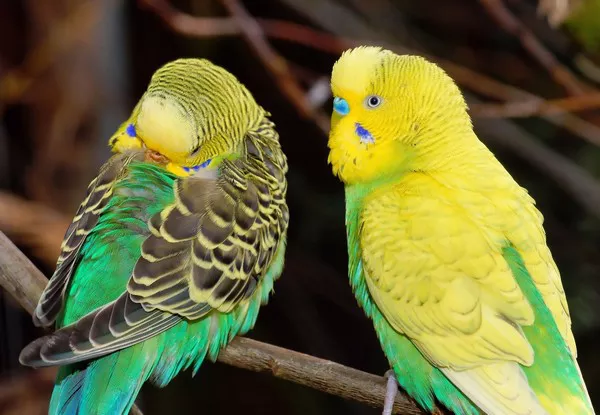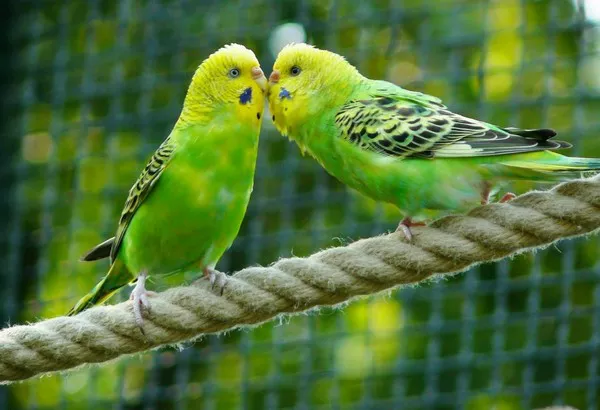Betta fish, also known as Siamese fighting fish, are popular aquarium pets due to their vibrant colors, flowing fins, and relatively easy care requirements. While they are often kept alone because of their aggressive nature, many aquarium enthusiasts wonder whether Betta fish can live harmoniously with other tropical fish. This article aims to provide a comprehensive guide to understanding Betta fish care, their temperament, and how to determine if they can be kept with other species in a community tank.
Betta fish (scientific name Betta splendens) are native to Southeast Asia, particularly Thailand, Cambodia, Laos, and Vietnam. They are typically found in slow-moving waters such as rice paddies, marshes, and streams. Known for their brilliant colors and dramatic fins, these fish have become a favorite among aquarium enthusiasts.
Betta fish are labyrinth fish, meaning they possess a specialized organ called a labyrinth organ that allows them to breathe air from the surface, in addition to absorbing oxygen through their gills. This adaptation is useful in their native habitats, where oxygen levels in the water may be low. Betta fish are hardy, relatively low-maintenance creatures that can thrive in smaller tanks, making them a great choice for beginner aquarium hobbyists.
However, one of the most important considerations when keeping Betta fish is their temperament. Betta fish are famously aggressive, particularly the males, which is why many people question whether it is possible to house them with other fish, especially in community tanks.
The Aggressive Nature of Betta Fish
Before exploring Betta fish compatibility with other tropical fish, it’s important to understand their natural behavior. Male Betta fish are notoriously territorial and can become aggressive when they feel their space is being threatened. This aggression is often directed toward other males of the same species, but it can also extend to other fish, especially those with similar body shapes or vibrant colors that may trigger territorial instincts.
Betta fish aggression is often exhibited through flaring, where the fish puffs up its gill covers and displays its fins to appear larger and more threatening. While some Betta fish may become less aggressive as they grow accustomed to their environment, many will still act defensively if they feel threatened or challenged.
Factors to Consider When Deciding If Betta Fish Can Live With Other Fish
Whether or not a Betta fish can live with other tropical fish depends on several factors. Understanding these factors will help you make an informed decision when planning your aquarium community. These factors include:
Temperament of the Betta: As mentioned earlier, Betta fish are known for their aggression, but their behavior can vary. Some Betta fish are more docile and tolerant of other species, while others may be more combative. The temperament of your Betta will play a significant role in determining how well they get along with other fish.
Size of the Tank: The size of your aquarium is critical when housing Betta fish with other species. A larger tank provides more space for the fish to establish territories, reducing the likelihood of conflicts. A crowded tank with inadequate space will increase stress levels for all inhabitants, including the Betta.
Fish Species Selection: Not all tropical fish are suitable companions for Betta fish. Choosing the right species of fish that have compatible temperaments, similar water requirements, and non-threatening behavior is crucial.
Environmental Factors: Betta fish thrive in warm water with a temperature range of 75-80°F (24-27°C). They also prefer slightly acidic to neutral water with a pH of around 6.5 to 7.5. Ensuring that the water conditions are ideal for all the species in the tank will help maintain a peaceful environment.
Tank Setup and Hiding Spots: Providing hiding spots and visual barriers in the tank can help reduce aggression. Decorations like plants, rocks, and caves give fish places to retreat to when they need to feel safe. Betta fish are more likely to coexist peacefully with other fish if they have the opportunity to avoid direct contact.
Tropical Fish Species That Can Live With Betta Fish
Although Betta fish are often best kept alone, there are certain species of tropical fish that can coexist with them under the right conditions. Here are some species that are generally considered compatible with Betta fish:
1. Corydoras Catfish (Corydoras spp.)
Corydoras catfish are peaceful, bottom-dwelling fish that are a good match for Betta fish. They do not compete for the same resources as Betta fish, as they primarily occupy the bottom of the tank while Betta fish swim near the surface. Corydoras are also small, non-aggressive, and do not provoke Betta fish with bright colors or fin displays. They are often an ideal choice for tank mates in Betta communities.
2. Neon Tetras (Paracheirodon innesi)
Neon tetras are small, peaceful schooling fish that are often chosen as companions for Betta fish. These tiny fish are not a threat to Betta fish, and their calm nature makes them unlikely to provoke aggression. The small size of neon tetras also makes them less likely to trigger a Betta’s territorial instincts. However, they should be kept in schools of at least five to six fish to reduce stress and ensure they feel secure.
3. Otocinclus Catfish (Otocinclus spp.)
Otocinclus catfish are another peaceful, algae-eating species that do well in a tank with Betta fish. They are small, non-threatening fish that stay near the bottom of the tank, and they do not compete with Betta fish for food. Their ability to help keep the tank clean by eating algae also benefits the overall aquarium environment.
4. Ember Tetras (Hyphessobrycon amandae)
Ember tetras are tiny, peaceful fish with a striking red-orange coloration. These fish are not aggressive and will not provoke a Betta fish. Due to their small size and calm demeanor, ember tetras are often a great choice for tanks with Betta fish. They should also be kept in schools to help them feel secure and reduce stress.
5. Kuhli Loaches (Pangio kuhlii)
Kuhli loaches are eel-like, bottom-dwelling fish that are peaceful and unlikely to provoke Betta fish. Their long, slender bodies make them a non-threatening presence in the tank. Kuhli loaches are excellent scavengers and help keep the substrate clean. They are also nocturnal, so they are less likely to come into direct conflict with Betta fish during the day.
6. Mollies (Poecilia sphenops)
While mollies can sometimes be a good match for Betta fish, it is important to choose peaceful, smaller varieties. Mollies are livebearers that tend to be calm, but males can occasionally display aggression. Female mollies, however, are generally more passive and can make good tankmates for Betta fish. Mollies also thrive in similar water conditions as Betta fish, making them a relatively easy addition to a community tank.
7. Harlequin Rasboras (Trigonostigma heteromorpha)
Harlequin rasboras are small, peaceful fish that are unlikely to provoke a Betta’s aggression. They are often kept in schools of six or more and do well in warm, slightly acidic water. Their calm nature and non-competitive behavior make them a good choice for a Betta fish tank.
Tropical Fish Species to Avoid with Betta Fish
While some tropical fish can coexist peacefully with Betta fish, there are others that are more likely to trigger aggression or cause stress for the Betta. These species should generally be avoided when creating a Betta fish community tank:
1. Other Male Betta Fish
Male Betta fish are highly territorial and should never be kept together in the same tank. If two males are placed in close proximity, they will likely engage in violent fights that can lead to injury or even death. Female Betta fish are less aggressive but can still exhibit territorial behavior. It is possible to keep a group of female Bettas (a sorority), but only in a very large tank with plenty of hiding spots and proper supervision.
2. Guppies (Poecilia reticulata)
Guppies are often recommended as tank mates for Betta fish due to their peaceful nature, but they can sometimes cause issues. Male guppies, with their brightly colored tails, may be seen as a threat by Betta fish, triggering aggression. Betta fish may attack guppies, especially those with long, flowing fins that resemble the Betta’s own. Guppies are better kept in separate tanks or with caution if attempting to house them with a Betta.
3. Angelfish (Pterophyllum scalare)
Angelfish are another species that may not be a good match for Betta fish. Angelfish are territorial and can become aggressive, particularly during breeding seasons. They are also larger than Betta fish and may intimidate or even bully smaller Bettas. Additionally, the long, flowing fins of Betta fish may provoke aggression from angelfish.
4. Chiclid Species
Many cichlid species, such as Oscars, Jack Dempseys, and African cichlids, are aggressive and territorial, making them poor companions for Betta fish. Their aggressive behavior and size differences will likely lead to conflicts in the tank.
Conclusion
In conclusion, Betta fish can live with other tropical fish, but this is heavily dependent on the specific species chosen, the size and setup of the tank, and the individual temperament of the Betta fish. While male Betta fish should generally be kept alone due to their territorial and aggressive behavior, certain peaceful species, such as Corydoras catfish, neon tetras, and otocinclus catfish, can coexist peacefully with Betta fish in a community tank.
When considering tank mates for a Betta fish, it is essential to choose species that are non-threatening, do not have long, flowing fins that might provoke the Betta, and are able to thrive in similar water conditions. A well-planned aquarium setup with plenty of hiding spots and space will help minimize stress and aggression, allowing your Betta fish and other tropical fish to live together harmoniously.
Ultimately, the success of keeping Betta fish with other tropical fish will depend on careful observation and maintaining the proper environment for all the species involved. With the right approach, it is possible to create a peaceful and thriving aquarium that includes Betta fish alongside other tropical fish.
Related Topics:























